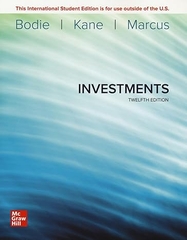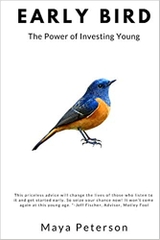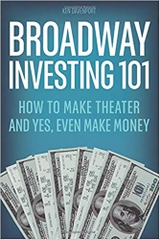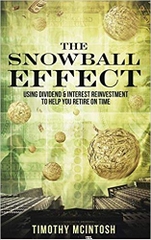-
-
-
Tổng tiền thanh toán:
-
-
Thông tin
-
Tìm sách theo yêu cầu
A black swan is an event, positive or negative, that is deemed improbable yet causes massive consequences. In this groundbreaking and prophetic book, Taleb shows in a playful way that Black Swan events explain almost everything about our world, and yet we—especially the experts—are blind to them. In this second edition, Taleb has added a new essay, On Robustness and Fragility, which offers tools to navigate and exploit a Black Swan world.
- Link: http://www.amazon.com/Black-Swan-Improbable-Robustness-Fragility/dp/081297381X
Product Details
Series: Incerto
- Paperback: 444 pages
- Publisher: Random House Trade Paperbacks; 2 edition (May 11, 2010)
- Language: English
- ISBN-10: 081297381X
- ISBN-13: 978-0812973815
- Product Dimensions: 8.6 x 4.5 x 1 inches
- Shipping Weight: 12 ounces (View shipping rates and policies)
- Average Customer Review: 3.7 out of 5 stars See all reviews (862 customer reviews)
- Amazon Best Sellers Rank: #2,930 in Books (See Top 100 in Books)
- #1 in Books > Politics & Social Sciences > Philosophy > Epistemology
- #9 in Books > Science & Math > Mathematics > Applied > Probability & Statistics
- #21 in Books > Business & Money > Management & Leadership > Decision-Making & Problem Solving
Editorial Reviews
Amazon.com Review
Bestselling author Nassim Nicholas Taleb continues his exploration of randomness in his fascinating new book, The Black Swan, in which he examines the influence of highly improbable and unpredictable events that have massive impact. Engaging and enlightening, The Black Swan is a book that may change the way you think about the world, a book that Chris Anderson calls, "a delightful romp through history, economics, and the frailties of human nature." See Anderson's entire guest review below.
 Chris Anderson is editor-in-chief of Wired magazine and the author of The Long Tail: Why the Future of Business Is Selling Less of More.
Chris Anderson is editor-in-chief of Wired magazine and the author of The Long Tail: Why the Future of Business Is Selling Less of More.
Four hundred years ago, Francis Bacon warned that our minds are wired to deceive us. "Beware the fallacies into which undisciplined thinkers most easily fall--they are the real distorting prisms of human nature." Chief among them: "Assuming more order than exists in chaotic nature." Now consider the typical stock market report: "Today investors bid shares down out of concern over Iranian oil production." Sigh. We're still doing it.
Our brains are wired for narrative, not statistical uncertainty. And so we tell ourselves simple stories to explain complex thing we don't--and, most importantly, can't--know. The truth is that we have no idea why stock markets go up or down on any given day, and whatever reason we give is sure to be grossly simplified, if not flat out wrong.
Nassim Nicholas Taleb first made this argument in Fooled by Randomness, an engaging look at the history and reasons for our predilection for self-deception when it comes to statistics. Now, in The Black Swan: the Impact of the Highly Improbable, he focuses on that most dismal of sciences, predicting the future. Forecasting is not just at the heart of Wall Street, but it’s something each of us does every time we make an insurance payment or strap on a seat belt.
The problem, Nassim explains, is that we place too much weight on the odds that past events will repeat (diligently trying to follow the path of the "millionaire next door," when unrepeatable chance is a better explanation). Instead, the really important events are rare and unpredictable. He calls them Black Swans, which is a reference to a 17th century philosophical thought experiment. In Europe all anyone had ever seen were white swans; indeed, "all swans are white" had long been used as the standard example of a scientific truth. So what was the chance of seeing a black one? Impossible to calculate, or at least they were until 1697, when explorers found Cygnus atratus in Australia.
Nassim argues that most of the really big events in our world are rare and unpredictable, and thus trying to extract generalizable stories to explain them may be emotionally satisfying, but it's practically useless. September 11th is one such example, and stock market crashes are another. Or, as he puts it, "History does not crawl, it jumps." Our assumptions grow out of the bell-curve predictability of what he calls "Mediocristan," while our world is really shaped by the wild powerlaw swings of "Extremistan."
In full disclosure, I'm a long admirer of Taleb's work and a few of my comments on drafts found their way into the book. I, too, look at the world through the powerlaw lens, and I too find that it reveals how many of our assumptions are wrong. But Taleb takes this to a new level with a delightful romp through history, economics, and the frailties of human nature. --Chris Anderson
--This text refers to the Hardcover edition.
Guest Reviewer: Chris Anderson
 Chris Anderson is editor-in-chief of Wired magazine and the author of The Long Tail: Why the Future of Business Is Selling Less of More.
Chris Anderson is editor-in-chief of Wired magazine and the author of The Long Tail: Why the Future of Business Is Selling Less of More. Four hundred years ago, Francis Bacon warned that our minds are wired to deceive us. "Beware the fallacies into which undisciplined thinkers most easily fall--they are the real distorting prisms of human nature." Chief among them: "Assuming more order than exists in chaotic nature." Now consider the typical stock market report: "Today investors bid shares down out of concern over Iranian oil production." Sigh. We're still doing it.
Our brains are wired for narrative, not statistical uncertainty. And so we tell ourselves simple stories to explain complex thing we don't--and, most importantly, can't--know. The truth is that we have no idea why stock markets go up or down on any given day, and whatever reason we give is sure to be grossly simplified, if not flat out wrong.
Nassim Nicholas Taleb first made this argument in Fooled by Randomness, an engaging look at the history and reasons for our predilection for self-deception when it comes to statistics. Now, in The Black Swan: the Impact of the Highly Improbable, he focuses on that most dismal of sciences, predicting the future. Forecasting is not just at the heart of Wall Street, but it’s something each of us does every time we make an insurance payment or strap on a seat belt.
The problem, Nassim explains, is that we place too much weight on the odds that past events will repeat (diligently trying to follow the path of the "millionaire next door," when unrepeatable chance is a better explanation). Instead, the really important events are rare and unpredictable. He calls them Black Swans, which is a reference to a 17th century philosophical thought experiment. In Europe all anyone had ever seen were white swans; indeed, "all swans are white" had long been used as the standard example of a scientific truth. So what was the chance of seeing a black one? Impossible to calculate, or at least they were until 1697, when explorers found Cygnus atratus in Australia.
Nassim argues that most of the really big events in our world are rare and unpredictable, and thus trying to extract generalizable stories to explain them may be emotionally satisfying, but it's practically useless. September 11th is one such example, and stock market crashes are another. Or, as he puts it, "History does not crawl, it jumps." Our assumptions grow out of the bell-curve predictability of what he calls "Mediocristan," while our world is really shaped by the wild powerlaw swings of "Extremistan."
In full disclosure, I'm a long admirer of Taleb's work and a few of my comments on drafts found their way into the book. I, too, look at the world through the powerlaw lens, and I too find that it reveals how many of our assumptions are wrong. But Taleb takes this to a new level with a delightful romp through history, economics, and the frailties of human nature. --Chris Anderson
--This text refers to the Hardcover edition.
From Booklist
In business and government, major money is spent on prediction. Uselessly, according to Taleb, who administers a severe thrashing to MBA- and Nobel Prize-credentialed experts who make their living from economic forecasting. A financial trader and current rebel with a cause, Taleb is mathematically oriented and alludes to statistical concepts that underlie models of prediction, while his expressive energy is expended on roller-coaster passages, bordering on gleeful diatribes, on why experts are wrong. They neglect Taleb's metaphor of "the black swan," whose discovery invalidated the theory that all swans are white. Taleb rides this manifestation of the unpredicted event into a range of phenomena, such as why a book becomes a best-seller or how an entrepreneur becomes a billionaire, taking pit stops with philosophers who have addressed the meaning of the unexpected and confounding. Taleb projects a strong presence here that will tempt outside-the-box thinkers into giving him a look. Gilbert Taylor
Copyright © American Library Association. All rights reserved --This text refers to the Hardcover edition.
Copyright © American Library Association. All rights reserved --This text refers to the Hardcover edition.
XEM THÊM TẠI AMAZON.COM
- Thông tin chi tiết
- Mục lục
- Đọc thử
- Đọc thử
- Đánh giá & bình luận của người mua
- Những cuốn sách cùng chủ đề hoặc có liên quan
Tại web chỉ có một phần nhỏ các đầu sách đang có nên nếu cần tìm sách gì các bạn có thể liên hệ trực tiếp với Thư viện qua Mail, Zalo, Fanpage nhé
Đăng ký nhận tin qua email
Hãy đăng ký ngay hôm nay để nhận được những tin tức cập nhật mới nhất về sản phẩm và các chương trình giảm giá, khuyến mại của chúng tôi.












